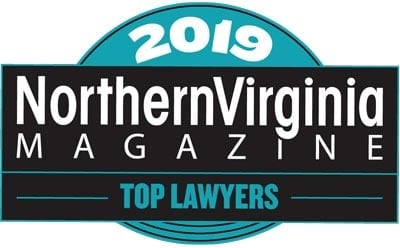Virginia recognizes a private cause of action for tortious interference with contract or business expectancy. A plaintiff can bring a claim for tortious interference when a third party (the defendant) has interfered with an existing contract or the plaintiff’s legitimate expectation of a prospective business relationship with another party.
What are the elements of a prima facie case of tortious interference?
In Virginia, the elements of a prima facie case of tortious interference with contract or business expectancy are:
- The existence of a valid contractual relationship or business expectancy;
- Knowledge of the relationship or expectancy on the part of the defendant;
- Intentional interference inducing or causing a breach or termination of the relationship or expectancy;
- Improper means used by the defendant to interfere with the expectancy*; and
- Resultant damage to the plaintiff, whose contractual relationship or business expectancy has been disrupted.
See Schaecher v. Bouffault, 772 S.E.2d 589, 602 (Va. 2015) (citing Chaves v. Johnson, 335 S.E.2d 97, 102 (Va. 1985)); Maximus, Inc. v. Lockheed Info. Mgmt. Sys., 493 S.E.2d 375, 378 (Va. 1997).
*This element only applies where the defendant interferes with an existing at-will contract or with a prospective contract or business expectancy.
In Dunlap v. Cottman Transmission Sys., LLC, the court outlined the four elements of tortious interference with contract rights (existence of the contract, defendant’s knowledge of the existence of the contract, intentional interference causing a breach of the contract, and resultant damages from the breach). 754 S.E.2d 313, 318 (Va. 2014). Further, the court stated that “if a contract is terminable at will or involves only a contract or business expectancy, a plaintiff, in order to present a prima facie case of tortious interference, must allege and prove not only an intentional interference . . . , but also that the defendant employed improper methods”) (citations and quotations omitted). The court explained that the tortious interference cause of action is rooted in the belief that contract rights historically included, at common law, a right to recovery against an interferer with a valid contract. Id.
What are considered improper methods for purposes of tortious interference with an at-will contract or business expectancy?
The Virginia Supreme Court has held that “improper methods may include violence, threats or intimidation, bribery, unfounded litigation, fraud, misrepresentation or deceit, defamation, duress, undue influence, misuse of inside or confidential information, or breach of a fiduciary relationship.” Duggin v. Adams, 360 S.E.2d 832, 836 (Va. 1987). It has also held that improper methods can be “means that are illegal or independently tortious,” violence, fraud, misrepresentation, and those that “violate an established standard of a trade or profession, or involve unethical conduct . . . overreaching, or unfair competition.” Dunlap, 754 S.E.2d at 321, n. 5. Improper methods may be, but do not have to be independently illegal or tortious. Maximus, 493 S.E.2d 375 at 414.
Is a competitive relationship necessary for a claim of tortious interference in Virginia?
The U.S. District Court for the Eastern District of Virginia has held that a competitive relationship is an “unstated” element of a prima facie case of tortious interference with contractual relations. See 17th St. Assocs., LLP v. Market Int’l Ins. Co. Ltd., 373 F. Supp. 2d 584, 601 (E.D. Va. 2005). The court has explained that a competitive relationship is necessary for a tortious interference claim because “the existence of a competitive relationship between a plaintiff and the defendant is the factual circumstance giving rise a common law duty actionable in tort.” 17th St. Assocs., LLP v. Market Int’l Ins. Co. Ltd., 373 F. Supp. 2d 584, 601 (E.D. Va. 2005).
The District Court has clarified that the existence of a competitive relationship between the plaintiff and the defendant indicates the defendant’s motive to interfere with the business expectancy or contractual relationship. Id. The court has also held that direct or indirect contact between the defendant and the source of the business or contract expectancy is another element of a prima facie claim because if the defendant has not made contact, the defendant has not actually interfered. Id.
While a competitive relationship and direct or indirect contact may be part of many cases of tortious interference, other courts in Virginia, including the Virginia Supreme Court have not explicitly found that they are necessary (albeit unstated) elements of a prima facie claim.
What damages are available in a tortious interference action?
The Virginia Supreme court has held that a defendant who has engaged in tortious interference with contract or business expectancy is liable to the plaintiff for “the pecuniary harm resulting from loss of the benefits of the relation, whether the interference consists of:
- inducing or otherwise causing a third person not to enter into or continue the prospective relation or
- preventing the other from acquiring or continuing the prospective relation.”
Maximus, Inc. v. Lockheed Info. Mgmt. Sys., 493 S.E.2d 375, 378 (Va. 1997) (citing Restatement (Second) of Torts § 766B (1977)).
Pecuniary, or financial harm to the plaintiff in a tortious interference case can include lost future profits that the plaintiff would have received from the contract or prospective contract or business expectancy, as long as they “are capable of reasonable ascertainment and are not uncertain, speculative, or remote.” Hop-In Food Stores, Inc. v. Serv-N-Save, Inc, 440 S.E.2d 606, 608 (Va. 1994) (citation omitted).
Northern Virginia Employment Attorneys
 An experienced employment lawyer can help you determine if you may be able to collect damages for a tortious interference with contract or business expectancy claim.
An experienced employment lawyer can help you determine if you may be able to collect damages for a tortious interference with contract or business expectancy claim.
The employment attorneys at Zuckerman Law endeavor to find common sense, practical solutions to achieve our clients’ objectives, but also relish the opportunity to take cases to trial to maximize a client’s recovery. To schedule a consultation, click here or call us at (571) 288-1309.








